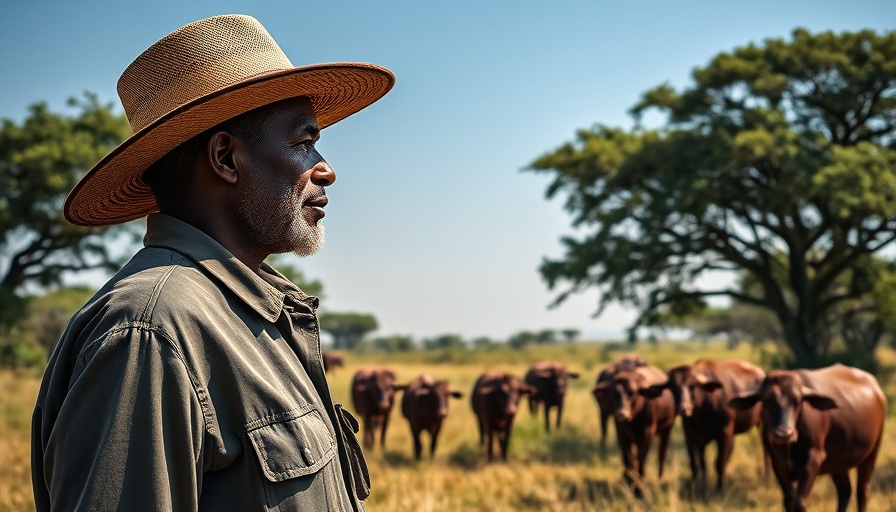
The Critical Balance Between Conservation and Community
Nairobi National Park, nestled within Kenya's bustling capital, stands out as a remarkable conservation area—its unique significance heightened by the encroaching urban development that now surrounds it. Home to lions, giraffes, and a myriad of other wildlife, the park is hemmed in on three sides by human habitation and only remains open to migration on its southern border. This narrow corridor not only connects the park's wildlife to broader ecosystems but also intersects with the lives of the Maasai people who inhabit that very land.
Maasai Farmers Choosing Coexistence
The Maasai community faces an excruciating dilemma. They are stewards of the land, choosing to keep substantial portions unfenced, even as their livestock becomes prey to the park’s apex predators. “My wife heard the commotion and scared the lion away,” recounts Isaac ole Kishoyian, a local farmer sharing the land with these magnificent and dangerous creatures. He embodies the Maasai spirit, emphasizing the importance of a shared wild heritage, stating, “We still want our children to enjoy the same wild heritage as we did.”
In stark contrast to the struggles faced by the Maasai are the inherent benefits of letting wildlife pass through. Conservationists laud the Maasai's voluntary land management decisions for creating a lifeline vital to maintaining genetic diversity among wildlife populations, thereby preventing "ecological extinction".
A Legacy Worth Protecting
Phylis Enenoa, another member of this close-knit community, poignantly illustrates the human-animal tensions that punctuate their lives. She regularly witnesses lions eyeing her cattle, their glances filled with predatory intent. Yet, she remains resolute—her connection to the land and its wildlife runs deep, echoing the values of her ancestors before her. The losses she incurs from lion attacks—10 sheep and three cows—do not deter her but rather signify a delicate balance, a story worth preserving. “Look at the black one,” she said recently, pointing at her surviving cow after an attack, embodying the daily reality she navigates—intimate yet perilous.
The Importance of Corridors for Wildlife Survival
The concept of ecological corridors is critical in wildlife conservation. Once, expansive rangelands allowed animals to migrate freely, from Nairobi to Amboseli and beyond. Human expansion, however, has compromised these routes, forcing both animals and communities to adapt in unconventional ways. Conservationists emphasize that without safe passages, the genetic health and future of these wildlife populations hang in the balance. Each baby lion cub born in the park risks facing a future devoid of genetic diversity if these corridors are not maintained.
Community as a Keystone to Conservation
As the city of Nairobi continues to grow, the relationship between urbanization and wildlife conservation remains fraught with challenges. Yet, the Maasai stand as a testament to what can be achieved through community-driven conservation efforts. Their willingness to coexist with the wildlife around them showcases an understanding that the future of both the animals and their pastoral way of life are intertwined.
Their stories serve as a beacon of hope, inspiring urban-dwellers and animal lovers alike to reflect on our shared responsibility as custodians of the earth. As we look towards the future, recognizing the sacrifices made by these communities can help forge better policies and practices to safeguard both human and animal lives.
 Add Row
Add Row  Add
Add 




Write A Comment